Analysis: How Peter Bosz’s PSV are tearing up the Eredivisie
PSV have a double-digit lead at the top of the Eredivisie standings as we prepare for the final stretch of the season, so they look set to lift their first league title in six years. More impressively, they have still preserved an unbeaten record in the league and are on course to smash the record points tally. Is this enough to change Peter Bosz’s reputation, though?
By Neel Shelat
With a dramatic stoppage-time winner against FC Twente, PSV preserved their 10-point lead at the top of the Eredivisie standings ahead of the final international break of the 2023/24 season.
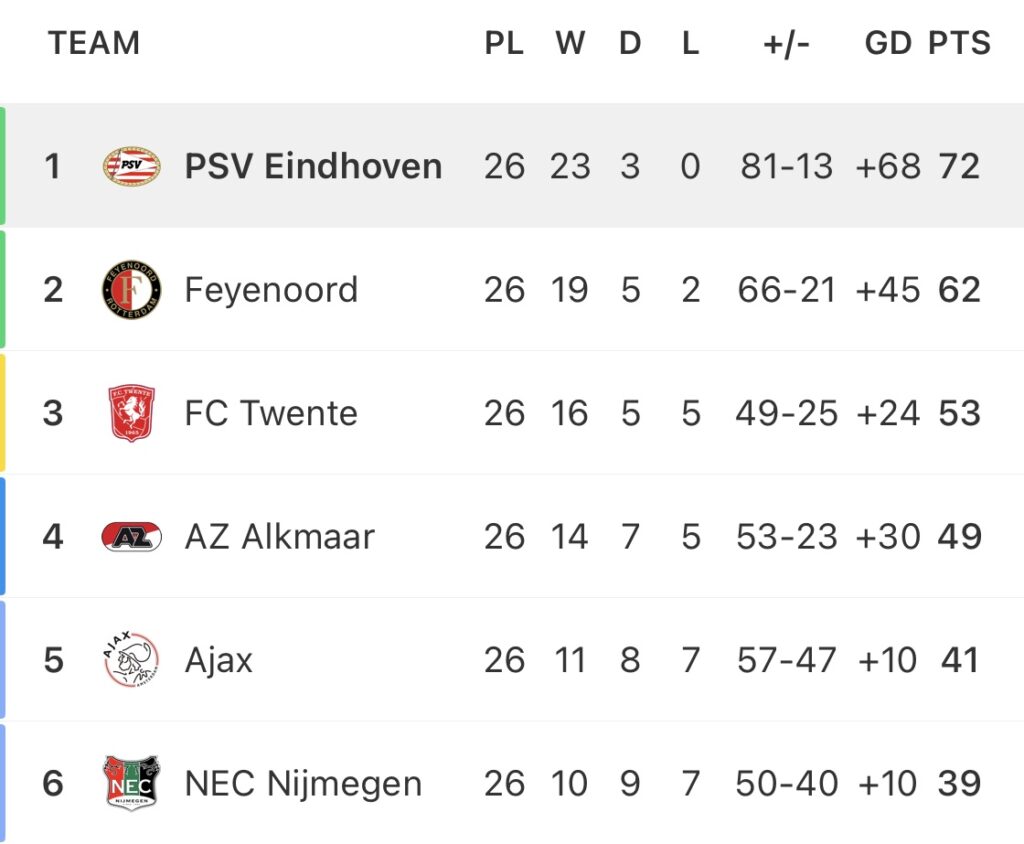
With 23 wins and 3 draws from 26 games, PSV are on course for just the third invincible season in Eredivisie history, the first in almost three decades, and the first for a team not named Ajax. Furthermore, if they win all eight remaining games, they will end up with 96 points – smashing Ajax’s record of 89 in 1997/98.
Domestic Dominance
Quite clearly, PSV have been on another level in the league. Be it goals scored, goals conceded, possession, chance creation or touches in the box, they have been the best team in the league by some margin and by most meaningful metrics.
Led by head coach Peter Bosz, they employ his typical possession-based attack-focused style of play. Unsurprisingly, then, they have been incredibly exciting to watch going forward. PSV’s return of 81 goals scored is 15 greater than their nearest rivals, and they have also amassed the highest xG tally in the division.
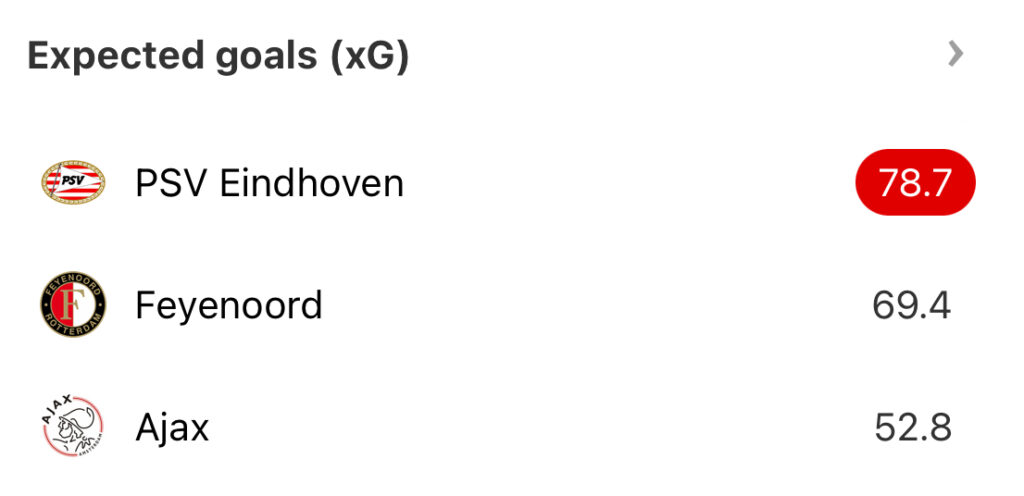
Indeed, PSV have typically been an exciting attacking outfit in recent years even before Bosz was appointed at the start of the season. Although they finished seven points off Feyenoord under Ruud van Nistelrooy last year, their return of 89 goals scored was the best in the division. In the likes of Cody Gakpo and Xavi Simons, they had some very exciting attackers in their ranks who frequently tore defences apart.
Although both of them were no longer a part of the squad going into this season, PSV’s attacking output has clearly not dropped off. Luuk de Jong deserves a great deal of credit for stepping up his output big time, but the goals and assists have come from all over the squad. Five players are in double digits in that respect already, with a further five more – including full-backs Sergiño Dest and Jordan Teze – registering over five goal involvements.
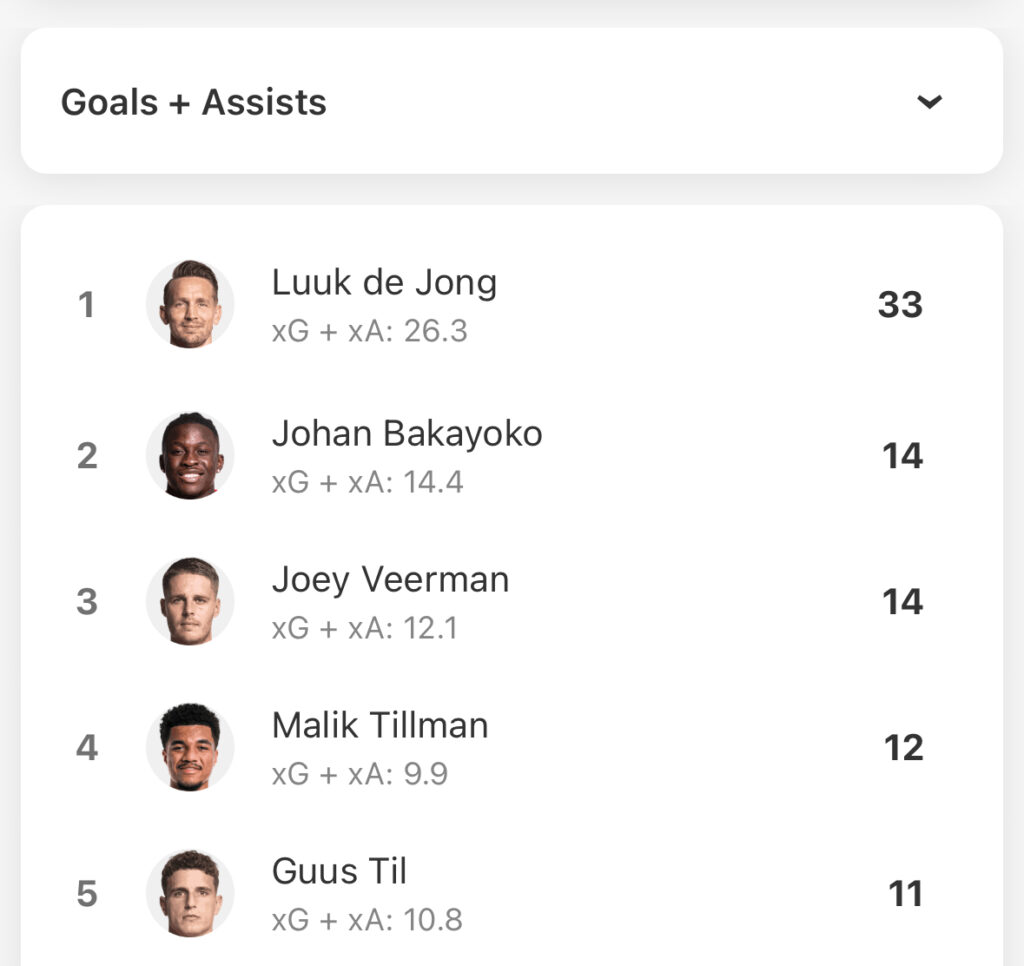
This all-round attacking involvement gives a good indication of what PSV’s tactics are like – all-out attack. Although Bosz alternates between a 4-2-3-1 and 4-3-3 formation on paper, PSV commit up to seven outfielders to the attack when breaking down stubborn low blocks. Dest is always free to advance all the way up the flank as a full-back, while two or even all three midfielders enter the final third.
Joey Veerman has starred in an all-action midfield role. While his tally of 11 assists is significantly inflated by his set-piece-taking role, the 25-year-old Dutchman is a lovely operator between the lines offering great off-ball positioning, on-ball quality and creativity to bring his side forward and play the killer pass.
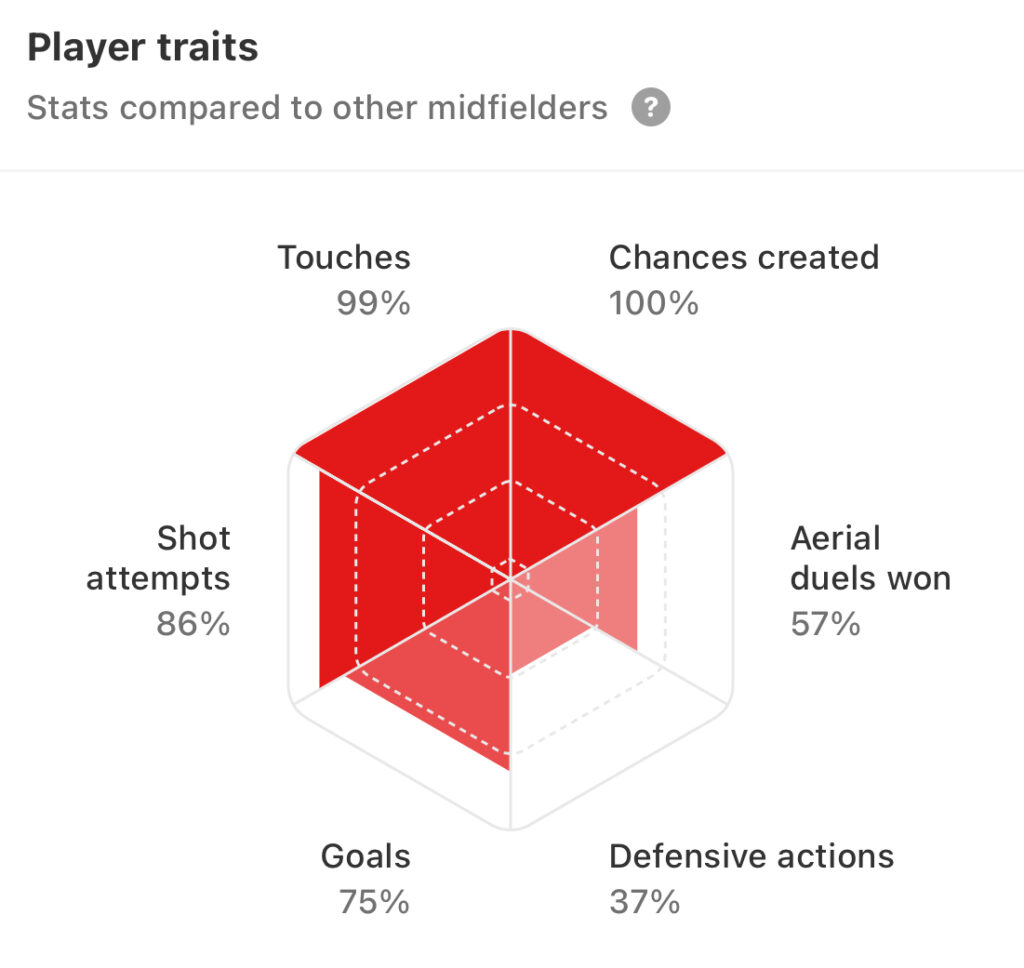
The most exciting youngster in this PSV squad, though, has to be Johan Bakayoko. The winger will only turn 21 next month, but he has already established himself as one of the team’s key attackers. Starting on the right, the Belgian international poses a multidimensional dribbling threat as he can cut inside and shoot or deliver dangerous crosses from out wide.
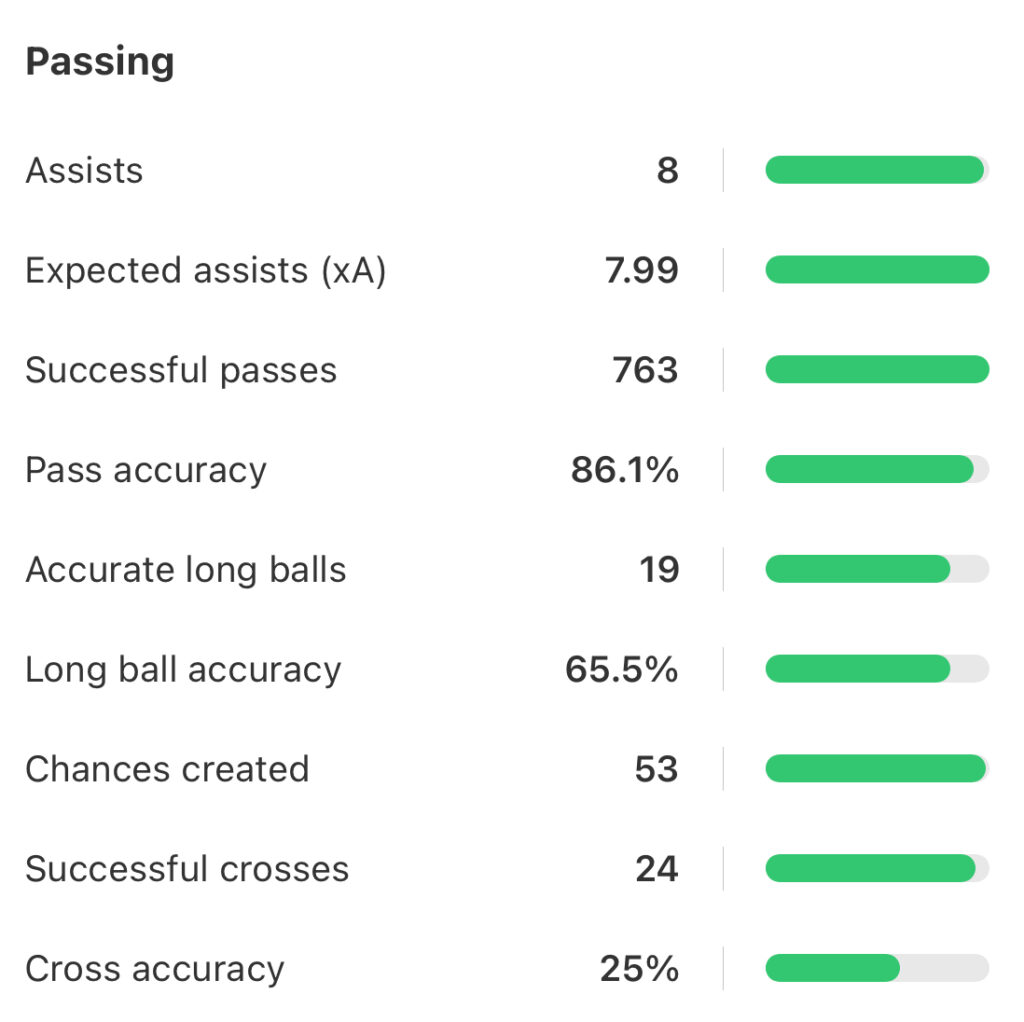
Adding the likes of Malik Tillman, Ismael Saibiri and Guus Til to these two assembles a whole host of creative talent, but their qualities would not be fully utilised without a proper goal-scorer. That is why Luuk de Jong has played a crucial role in this PSV side, as his traits as a line-leading striker who makes a living out of getting on the end of crosses and cut-backs in the box have helped him score over a quarter of his side’s league goals.
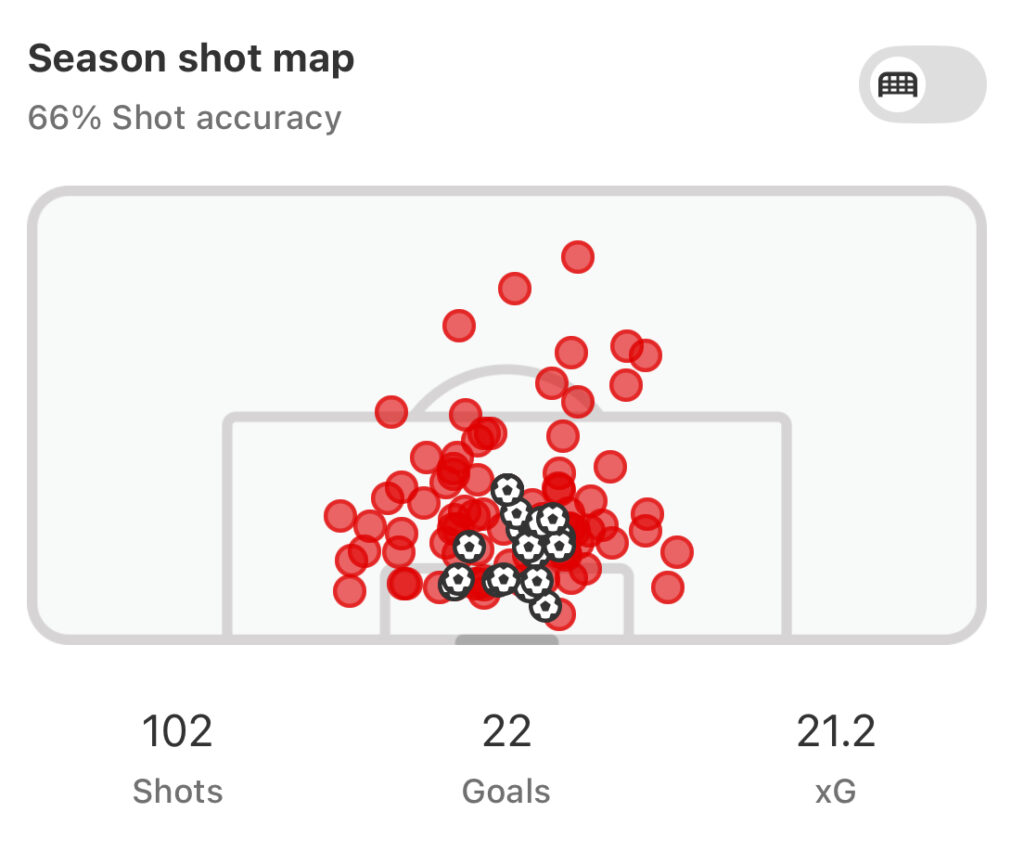
Lingering Concerns
All of this paints a lovely picture of PSV as a free-flowing attacking team which is not inaccurate, but a big factor in their domestic dominance is that their defence has not really been tested too much.
Indeed, all of Bosz’s previous teams including the likes of Borussia Dortmund, Bayer Leverkusen and Lyon were unbelievably easy on the eye when they had the ball, but the trouble began when they lost it. The Dutch tactician’s pressing was often too gung ho in the major leagues, but more importantly, his all-out approach in possession left his teams incredibly vulnerable to counterattacks.
In the Eredivisie, though, these issues have not been so apparent due to the relatively lower quality of opposition. Most of the teams lower down the table tend to sit back in extremely deep blocks against table-topping opponents with as many as nine outfielders defending the box, leaving one striker up top at most to use as a counterattacking outlet. Add to that their relatively lower player quality, and it is easy to understand why Bosz’s typical defensive frailties were not exposed during his last Eredivisie stint with Ajax and have once again not really been seen.
Even so, PSV’s extremely low tally of 13 goals conceded does not paint a fully accurate picture. Their xG conceded figure of 22.4 is worse than Feyenoord’s, and had PSV let in as many goals as they should have been expected to, our Expected Points model suggests the title race would have been a lot closer.
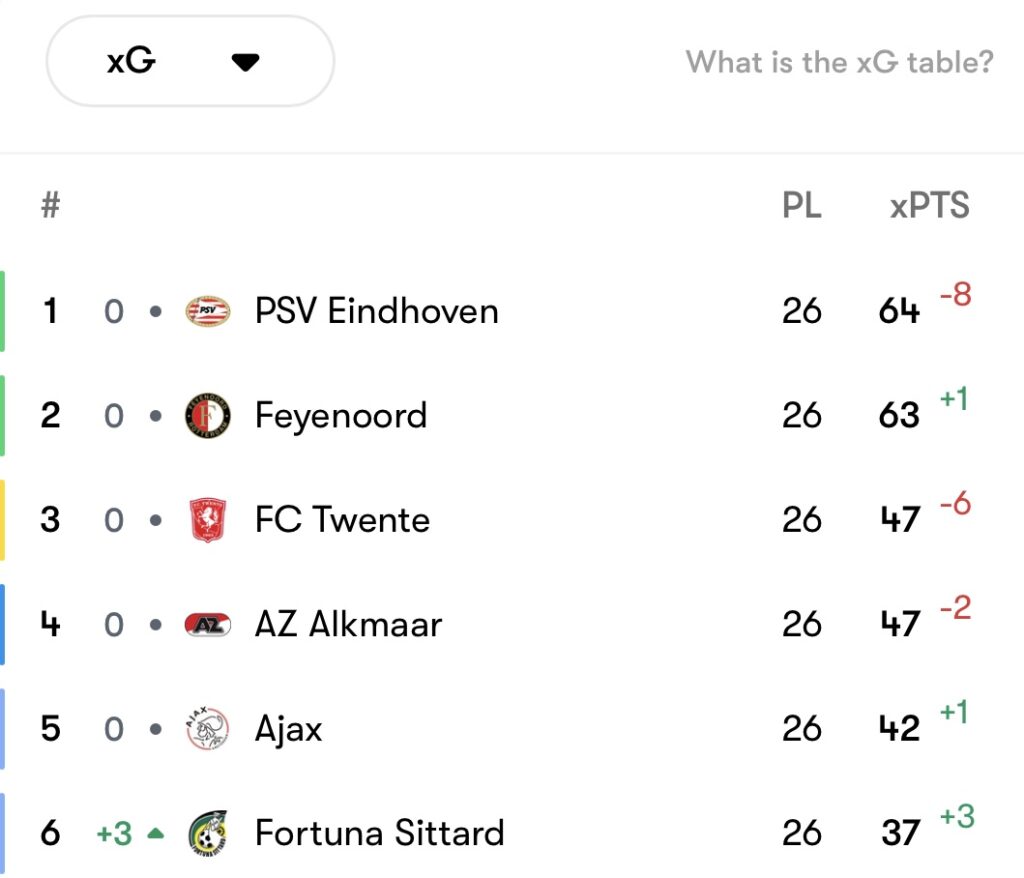
Although the results might not always suggest it, PSV have had some close shaves in their league fixtures against strong rivals such as Feyenoord, Twente, and Ajax. Two of their three draws have come against these teams, and their cup elimination came at the hands of Feyenoord.
Most evidently, though, PSV’s defensive weakness was highlighted in the Champions League. They finished with a negative goal difference in Group B and were truthfully fortunate to reach the knockouts, where they tasted defeat at the first hurdle against a mediocre Borussia Dortmund side who are barely in the Bundesliga’s top four.
So, while PSV’s potentially record-breaking league campaign is incredibly impressive, this seems to be the ceiling of their potential under Bosz. The 60-year-old Dutch head coach has not changed much after disappointing ends to his stints at Leverkusen and Lyon, but external factors have enabled him to thrive in the Eredivisie. As long as his side plays such exciting attacking football, though, we should have no reason to complain about that.
(Cover image from IMAGO)
You can follow every Eredivisie game live with FotMob — featuring deep stats coverage including shot maps, xG, and player ratings. Download the free app here.